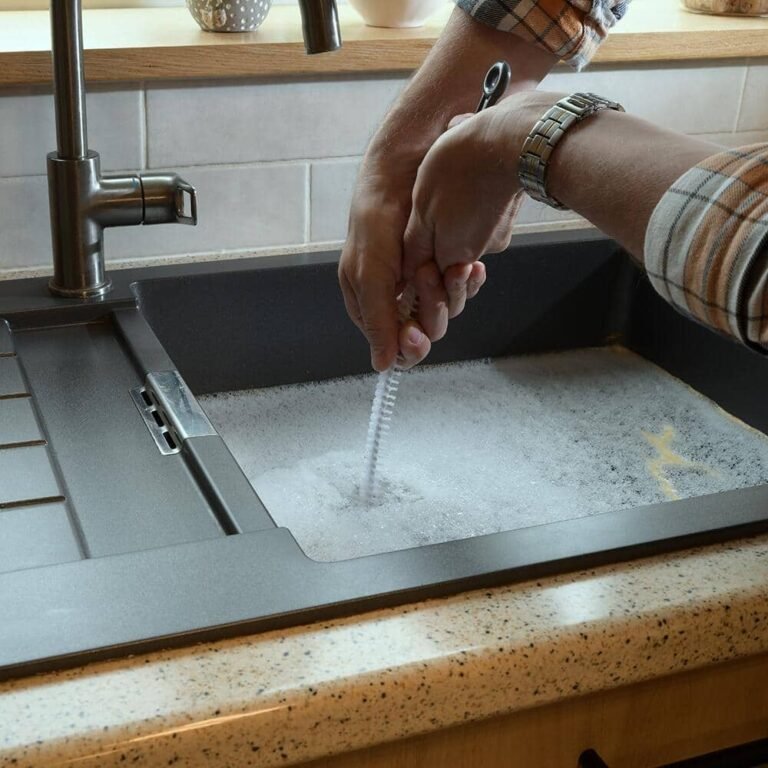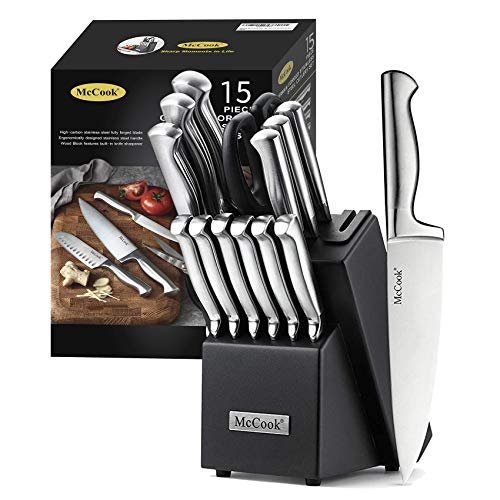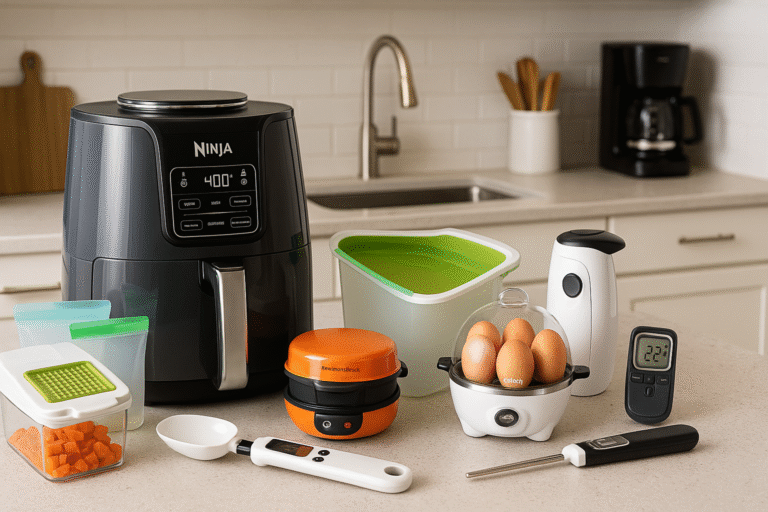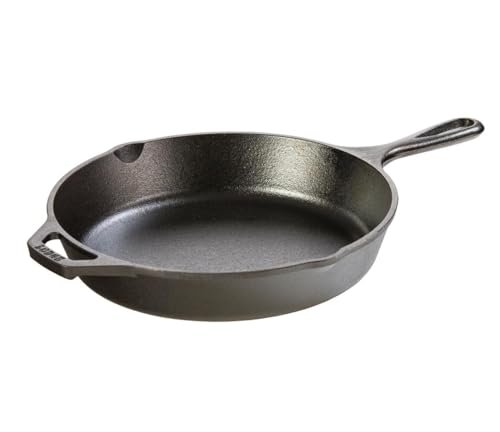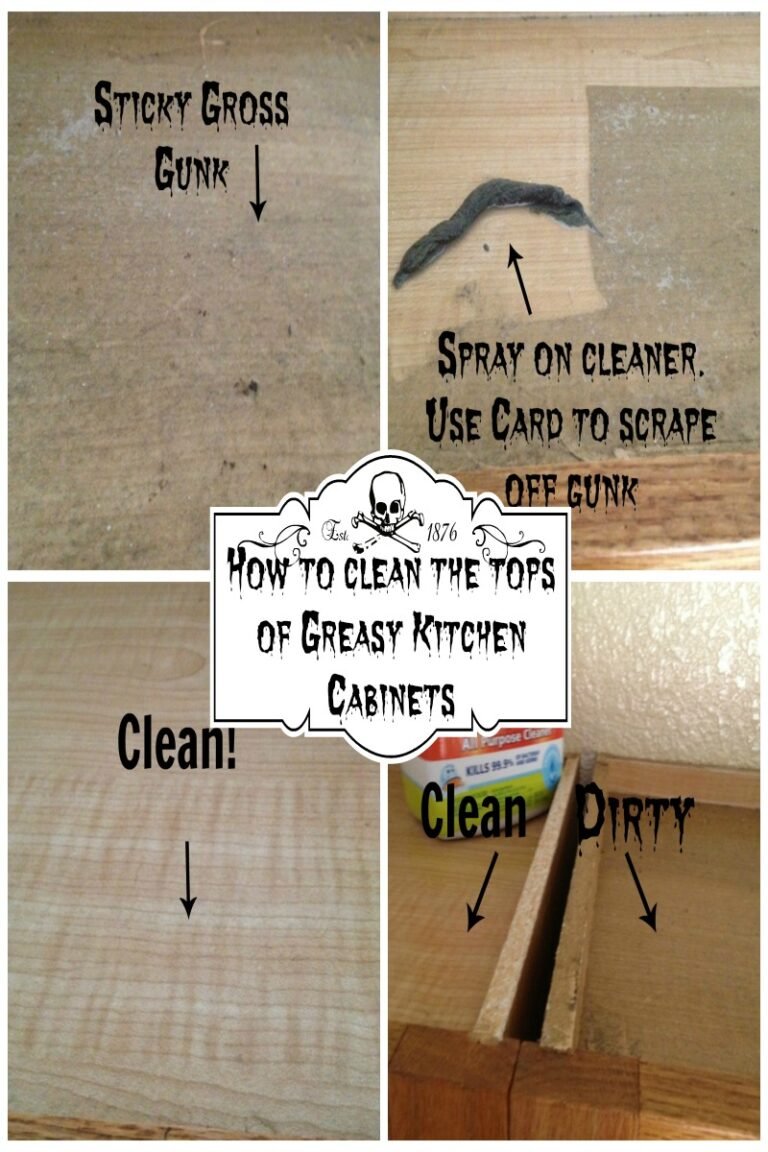What is the Best Drain Cleaner for Kitchen Sinks: Top Picks
Have you ever stood in front of your kitchen sink, watching the water refuse to drain away? It’s a frustrating sight that can disrupt your daily routine and leave you searching for a quick fix.
But with so many drain cleaners available, how do you know which one is right for your kitchen sink? The wrong choice could lead to more clogs or even damage your pipes. In this guide, you’ll discover the best drain cleaner for kitchen sinks that not only clears the toughest blockages but also keeps your plumbing safe.
Stick around, and you’ll find the perfect solution that will make your kitchen sink flow smoothly again, saving you time and hassle.
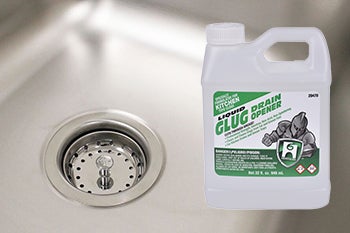
Credit: www.oatey.com
Common Causes Of Kitchen Sink Clogs
Kitchen sinks often get clogged, causing frustration for many homeowners. Understanding the common causes can help prevent this issue. Let’s explore what typically causes these blockages.
1. Food Waste
Food particles often slip down the drain. This is a common problem. Over time, these particles accumulate and block the pipes. Greasy foods are especially troublesome. They solidify and stick to pipe walls.
2. Grease And Oil
Pouring grease down the sink is a mistake. Once cooled, grease hardens. This forms a stubborn clog in the pipes. Always dispose of grease properly. Let it cool and throw it in the trash instead.
3. Soap Buildup
Soap isn’t just soap. Many soaps contain fats. These fats combine with minerals in water. They create a hard residue called soap scum. This scum sticks to pipes and narrows the passage.
4. Hair And Pet Fur
While more common in bathroom drains, hair can also clog kitchen sinks. Pet fur can also contribute to blockages. These strands intertwine with other debris and form a tangled mess.
5. Foreign Objects
Small items sometimes fall into the sink. Rings, bottle caps, and even small toys can cause clogs. These objects can obstruct water flow. Always check for stray items before rinsing dishes.
6. Coffee Grounds
Coffee grounds seem harmless. But they clump together in water. This forms a thick paste. Never discard coffee grounds in the sink. Instead, use them in compost or dispose of them in the trash.
Understanding these common causes helps maintain a clog-free kitchen sink. Prevention is key to avoiding plumbing issues.
Types Of Drain Cleaners
Liquid, gel, and enzymatic cleaners are popular for unclogging kitchen sinks. Each type has unique benefits. Liquid cleaners quickly dissolve grease, while enzymatic options are eco-friendly.
When tackling stubborn clogs in your kitchen sink, choosing the right drain cleaner can make all the difference. With various types available, each offers unique benefits and potential drawbacks. Understanding these can help you make a more informed choice for your kitchen plumbing needs.Chemical Drain Cleaners
Chemical drain cleaners are often the first choice when dealing with serious blockages. They use powerful substances to dissolve hair, grease, and soap scum. These cleaners work fast, often within minutes. However, their potency comes with a downside. Overuse can damage pipes, especially if they’re old or made from certain materials. It’s essential to follow instructions carefully to prevent any mishaps.Enzymatic Cleaners
Enzymatic cleaners are a gentler alternative. They rely on natural enzymes to break down organic materials. This makes them an eco-friendly option, ideal for regular maintenance. They’re perfect if you prefer less harsh chemicals in your home. While they may take longer to work, they’re safer for your plumbing system and the environment. If you’re patient, they can be a great choice.Natural Solutions
For those who like DIY approaches, natural solutions are worth considering. Ingredients like baking soda and vinegar can be surprisingly effective for minor clogs. They offer a non-toxic method to keep your drains clear. Think about the last time you faced a minor clog. Did you try this simple mixture? It’s amazing how everyday items can solve common problems. Plus, you’ll avoid the risk of damaging your pipes. Choosing the right type of drain cleaner involves balancing effectiveness with safety. What’s more important to you — speed or sustainability? Your choice can impact not just your pipes, but also the environment.Factors To Consider When Choosing A Drain Cleaner
Choosing the right drain cleaner for kitchen sinks can be overwhelming. Each product offers unique benefits. To make the best choice, consider key factors. These factors ensure the cleaner effectively solves your issue. They also help you avoid harmful consequences.
Effectiveness
A good drain cleaner should clear stubborn clogs. It must dissolve grease, food particles, and debris. Check product reviews for real-life results. Ensure the cleaner works quickly and efficiently. Speed matters when dealing with blocked sinks.
Safety
Safety is crucial when using chemical cleaners. Some products contain harsh chemicals. They can damage pipes or harm skin. Choose cleaners with safe ingredients. Read labels carefully. Avoid products with dangerous warnings.
Environmental Impact
Consider the environmental effects of drain cleaners. Many contain toxic substances. These can harm aquatic life and pollute water. Opt for eco-friendly alternatives. They should be biodegradable and non-toxic. Protecting the environment is important.
Ease Of Use
Ease of use is another important factor. Some cleaners require complex application. Others need simple pouring and flushing. Choose a product with clear instructions. It should fit seamlessly into your routine. Avoid those needing special equipment or extra steps.
Top Chemical Drain Cleaners
Kitchen sinks often face clogging issues. Grease, food particles, and soap residue can block drains. Chemical drain cleaners are a quick solution. They dissolve blockages fast. But choosing the right one is key. Here’s a guide on top chemical drain cleaners.
Pros And Cons
Chemical drain cleaners are powerful. They clear clogs quickly. Ideal for stubborn blockages. Easy to use. No need for professional help. Available in most stores. But they come with risks. Can be harsh on pipes. May damage older plumbing. Toxic fumes are possible. Always use with caution.
Best Brands
Several brands stand out. Drano is well-known. Effective for tough clogs. Liquid-Plumr is another favorite. Works on grease and hair. Zep offers industrial strength. Safe for metal and plastic pipes. Green Gobbler is eco-friendly. Less harsh on plumbing. These brands offer reliable solutions.
Top Enzymatic Drain Cleaners
Enzymatic drain cleaners offer a natural solution for clearing kitchen sink clogs. These cleaners use enzymes to break down food and grease. They are safe for pipes and the environment, making them a popular choice for maintaining clean drains.
If you’ve ever faced a slow-draining kitchen sink, you know the frustration that follows. Food particles, grease, and soap residue can create a stubborn clog. While there are many solutions available, enzymatic drain cleaners stand out for their natural, eco-friendly approach. They use enzymes and bacteria to break down organic matter, making them a safe choice for both your plumbing and the environment. But how do you choose the best one?Pros And Cons
Enzymatic drain cleaners offer several advantages. They are safe for all types of pipes, including older plumbing systems. Unlike chemical cleaners, they won’t harm your septic tank or the beneficial bacteria within it. However, they do take longer to work, usually requiring several hours or even overnight. This might not be ideal if you’re in a rush to clear a blockage. On the downside, enzymatic cleaners may not be effective on severe clogs. They are best suited for regular maintenance rather than emergency fixes. So, while they are gentle and environmentally friendly, they might not always provide the quick fix you need.Best Brands
There are a few standout brands when it comes to enzymatic drain cleaners. Bio-Clean is highly recommended for its effectiveness and safety. It’s trusted by plumbers and homeowners alike. Another popular choice is Green Gobbler, known for its easy application and powerful formula. Roebic offers an excellent product that is specifically designed for kitchen drains and grease traps. It’s a great option if you frequently deal with grease-related clogs. Additionally, Earthworm provides a natural and pleasant-smelling solution, making it ideal for regular use. Have you tried any of these brands before? If not, give one a shot and see how it transforms your kitchen sink maintenance routine. Choosing the right enzymatic drain cleaner can save you both time and frustration. Remember, a little prevention goes a long way!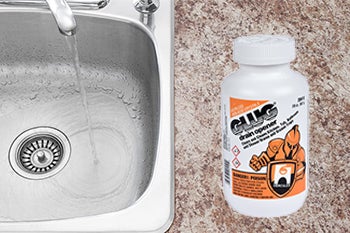
Credit: www.oatey.com
Natural Drain Cleaning Methods
Natural drain cleaning methods offer a safe approach for kitchen sinks. These methods use ingredients found at home. They are eco-friendly and easy to use. No need for harsh chemicals. The best part is the simplicity. You can keep your sink clean without harming the environment.
Household Ingredients
Baking soda is a popular choice for cleaning drains. It is gentle yet effective. White vinegar is another great option. It helps break down the grime. Lemon juice is also useful. It leaves a fresh scent in your kitchen. Salt can help scrub away residue. All these items are usually in your pantry.
Diy Recipes
Mix baking soda and vinegar for a powerful cleaner. Pour half a cup of baking soda down the drain. Follow with half a cup of vinegar. Let it fizz and sit for 15 minutes. Rinse with hot water. This method clears minor blockages.
Lemon juice and baking soda make a refreshing cleaner. Combine half a cup of each. Pour the mix into the drain. Leave it for 10 minutes. Flush with warm water to finish. This blend cleans and deodorizes.
Use salt and hot water for stubborn clogs. Pour half a cup of salt into the sink. Follow with boiling water. This helps dissolve grease and grime. Repeat if needed for best results.
Preventive Measures For Avoiding Clogs
Kitchen sink clogs can be a real hassle, but did you know that simple preventive measures can save you from these messy situations? By incorporating regular maintenance and adopting proper disposal practices, you can keep your kitchen sink flowing smoothly. Let’s dive into some practical tips that will help you avoid those frustrating blockages.
Regular Maintenance Tips
Ever thought about the power of hot water? Running hot water down your drain once a week can help clear away grease buildup. It’s like giving your pipes a mini spa treatment. If you prefer a more robust solution, consider using a mixture of baking soda and vinegar. It’s a natural cleaner that fizzes away minor debris and leaves your sink fresh.
Regularly check your sink strainer. Even a small piece of food can lead to a bigger problem. Make it a habit to clean it daily. This simple step is a great way to prevent clogs before they start.
Proper Disposal Practices
What do you do with leftover cooking oil? If you’re pouring it down the drain, it’s time to change that habit. Cooking oil solidifies and causes blockages. Instead, store it in a container and dispose of it in the trash. Your pipes will thank you.
Think before you wash! Items like coffee grounds and eggshells can wreak havoc on your drainage system. Always dispose of them in the garbage rather than the sink. This small change can make a huge difference in preventing clogs.
Are you guilty of flushing down chunks of food? It’s tempting, but scraping plates into the trash first can prevent major issues. A little mindfulness goes a long way in keeping your kitchen sink clog-free.
What’s your go-to method for keeping your sink clean? Feel free to share your tips and experiences. Could you be doing more to protect your plumbing? With these preventive measures, you can keep your kitchen sink running smoothly and avoid those annoying clogs.
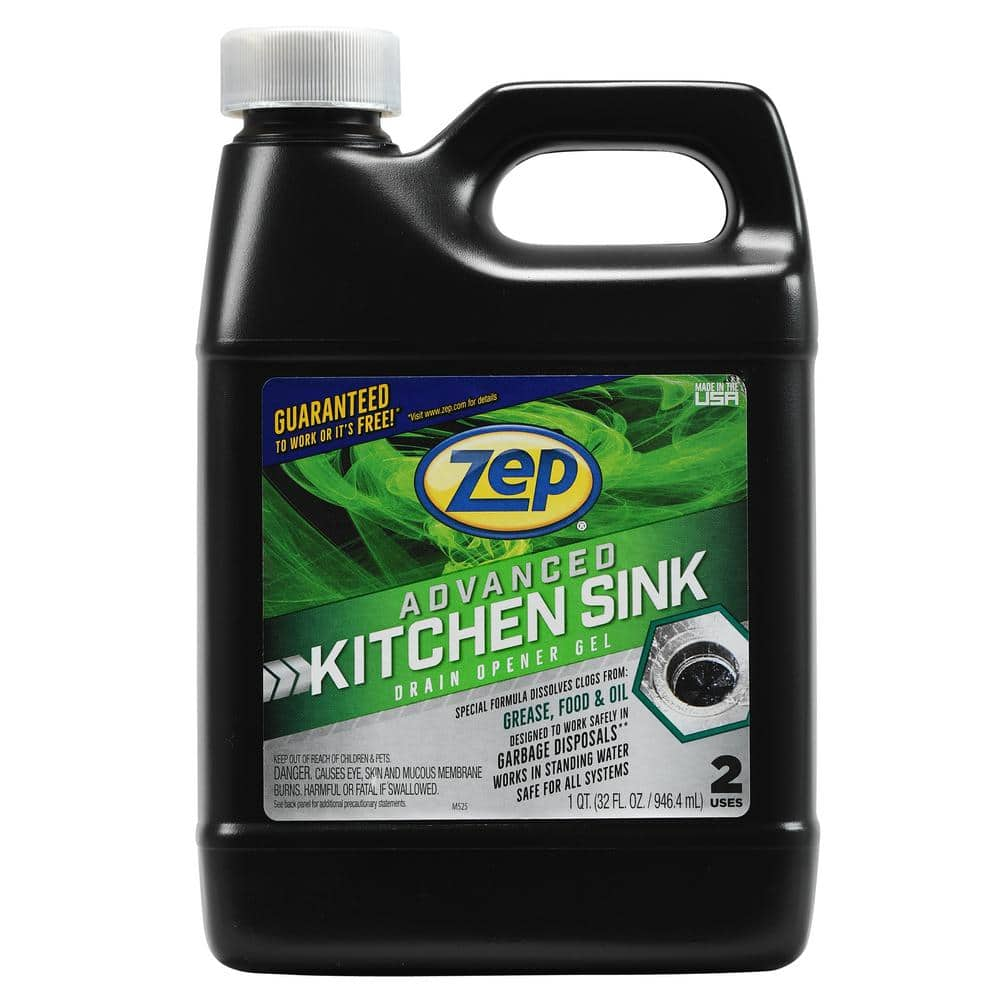
Credit: www.homedepot.com
Frequently Asked Questions
What Do Plumbers Recommend To Unclog Drains?
Plumbers often suggest using a plunger or a plumber’s snake to unclog drains. For minor clogs, they recommend baking soda and vinegar. Regular maintenance with enzyme-based cleaners can prevent future blockages. Avoid chemical drain cleaners as they may damage pipes and harm the environment.
What Is The Best Thing To Use To Unclog A Kitchen Sink?
Use baking soda and vinegar to unclog a kitchen sink. Pour half a cup of baking soda, then half a cup of vinegar. Let it sit for 15 minutes. Flush with hot water to clear the blockage. This natural method is effective and eco-friendly.
What’s The Best Way To Clean A Kitchen Sink Drain?
Use a mixture of baking soda and vinegar. Pour half a cup of baking soda down the drain. Follow with one cup of vinegar. Let it fizz for 15 minutes. Flush with hot water. This method effectively cleans and deodorizes kitchen sink drains naturally.
Is Drano Better Than Baking Soda And Vinegar?
Drano is often more effective for tough clogs than baking soda and vinegar. It contains powerful chemicals designed to dissolve blockages quickly. While natural remedies like baking soda and vinegar are safer and eco-friendly, they may not be as potent for severe clogs.
Always follow safety guidelines when using chemical drain cleaners.
How Do I Choose The Best Drain Cleaner?
Consider the type of clog. Match it with the cleaner’s strength. Read reviews for effectiveness. Check ingredients for safety.
Conclusion
Choosing the right drain cleaner keeps your kitchen sink flowing smoothly. Not all cleaners are the same. Some work better on stubborn clogs. Others are gentler for routine cleaning. Check labels for safe use on pipes. Consider eco-friendly options if you’re concerned about the environment.
Always follow instructions carefully to avoid damage. Trying a few options can help you find the best fit. Regular maintenance prevents future blockages. A clean sink means a happy kitchen. Keep it simple. Keep it clear. Your sink deserves the best care.

